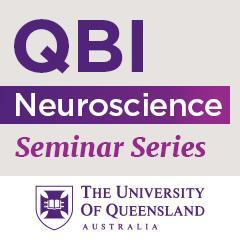
Speaker: Professor Karin Nordström
Flinders Medical Centre
Flinders University
South Australia
Title: Motion vision in a small brain
Abstract: Many animals use visual cues when navigating through the surround. For example, an animal’s own motion through the world creates widefield, self-generated optic flow across the retina, which can be used to stay on a straight path, and to avoid obstacles. However, some features in the surround move independently of such self-generated optic flow. For example, a bird flying past will move along an independent trajectory compared with the self-generated optic flow. Similarly, a rapidly approaching object, will also move inconsistently with the remaining surround.
Such independent object motion is important for detecting e.g. predators, prey and conspecifics. In hoverflies, target detection is predominantly used in conspecific interactions. This behavior is believed to be subserved by small target motion detector (STMD) neurons found in the optic lobes and their presumed post synaptic counterparts, target selective descending neurons (TSDNs), which project to the motor command centers. These neurons respond with high specificity to the motion of small targets. STMDs, but intriguingly not TSDNs, are capable of robust responses even against velocity matched optic flow. By comparing our neurophysiological data with behavior, we aim to understand neural encoding in biological relevant context.
About Neuroscience Seminars
Neuroscience seminars at the QBI play a major role in the advancement of neuroscience in the Asia-Pacific region. The primary goal of these seminars is to promote excellence in neuroscience through the exchange of ideas, establishing new collaborations and augmenting partnerships already in place.
Seminars in the QBI Auditorium on Level 7 are held on Wednesdays at 12-1pm, which are sometimes simulcast on Zoom (with approval from the speaker). We also occassionally hold seminars from international speakers via Zoom. The days and times of these seminars will vary depending on the time zone of the speaker. Please see each seminar listed below for details.



